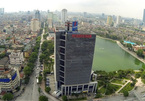The Foreign Investment Agency (FIA) reported that Vietnam’s enterprises registered $222.67 million worth of investment abroad in H1, an increase of 11.4 percent compared with the same period last year.

Of this, 70 newly licensed projects had total investment capital of $185.3 million, up 78.4 percent.
Prior to that, in a report to the government about outward investment in 2019, Minister of Planning and Investment Nguyen Chi Dung said the total registered capital reached $528.78million, an increase of 10 percent over 2018, while the profit and capital transferred to home country was $313.5 million.
As of the end of 2019, the cumulative registered capital had reached $20.6 billion and the profit and capital transferred to home country $3 billion.
Five enterprises had investment capital abroad exceeding $1 billion, namely, PetroVietnam (oil and gas), Viettel (telecom), Vietnam Rubber Group (VRG), Hoang Anh Gia Lai Group and Thaco (automobile).
PetroVietnam’s oil and gas exploitation project in Russia brought profit of $170.07 million, Viettel’s telecom network project in Cambodia $22.1 million, while the projects in East Timor $6.3 million and in Laos $5.8 million.
| FIA noted the significant increase in number of small and medium projects registered by private enterprises in recent years, which is a contrast to the decrease in number of oil and gas and telecommunication projects by SOEs. |
FIA noted the significant increase in number of small and medium projects registered by private enterprises in recent years, which is a contrast to the decrease in number of oil and gas and telecommunication projects by SOEs.
All newly registered outward investment projects in 2019 were developed by private enterprises, including Vingroup, Vietjet, Thaco, FPT, T&T, Vinamilk and TH True Milk, while there was no SOE in the list of investors.
According to Nguyen Tri Hieu, a respected finance expert, Vietnam’s outward investment remains modest, lower than 10 percent of GDP.
This is understandable. Over the last 40 years, Vietnam has been focusing on investments in the domestic market to develop various business fields of the economy. The strategy is appropriate to the country’s conditions and development level.
Hieu said it is necessary to give more support to encourage enterprises, especially private ones, to make outward investments, and expand the fields enterprises can invest in, such as trade, service, real estate, information technology, finance and banking.
He commented that the investments in the banking sector remain very low. The investments in the field cannot bring fat profits because of low competitiveness and limited services, but they will bring certain benefits, such as can better serving overseas Vietnamese businesspeople.
FIA also noted the diversification in target investment markets with many projects registered in the US, Australia, Spain, Canada, Japan, South Korea and Singapore, while investment in neighboring Laos and Cambodia is slowing down.
Translated by Kim Chi

How are SOEs’ outward investment projects performing?
State-owned economic groups had registered 114 outward investment projects as of the end of 2019 with registered capital of $13.8 billion, according to the MInistry of Public Investment.

Vietnam’s outward investment rebounds
Outward investments, which fell for a short time because of Covid-19, resumed again after the social distancing policy ended.
 While private enterprises have made more outward investments, state-owned enterprises (SOEs) have been gradually reducing their investments, reported Bizlive." itemprop="description" />
While private enterprises have made more outward investments, state-owned enterprises (SOEs) have been gradually reducing their investments, reported Bizlive." itemprop="description" />